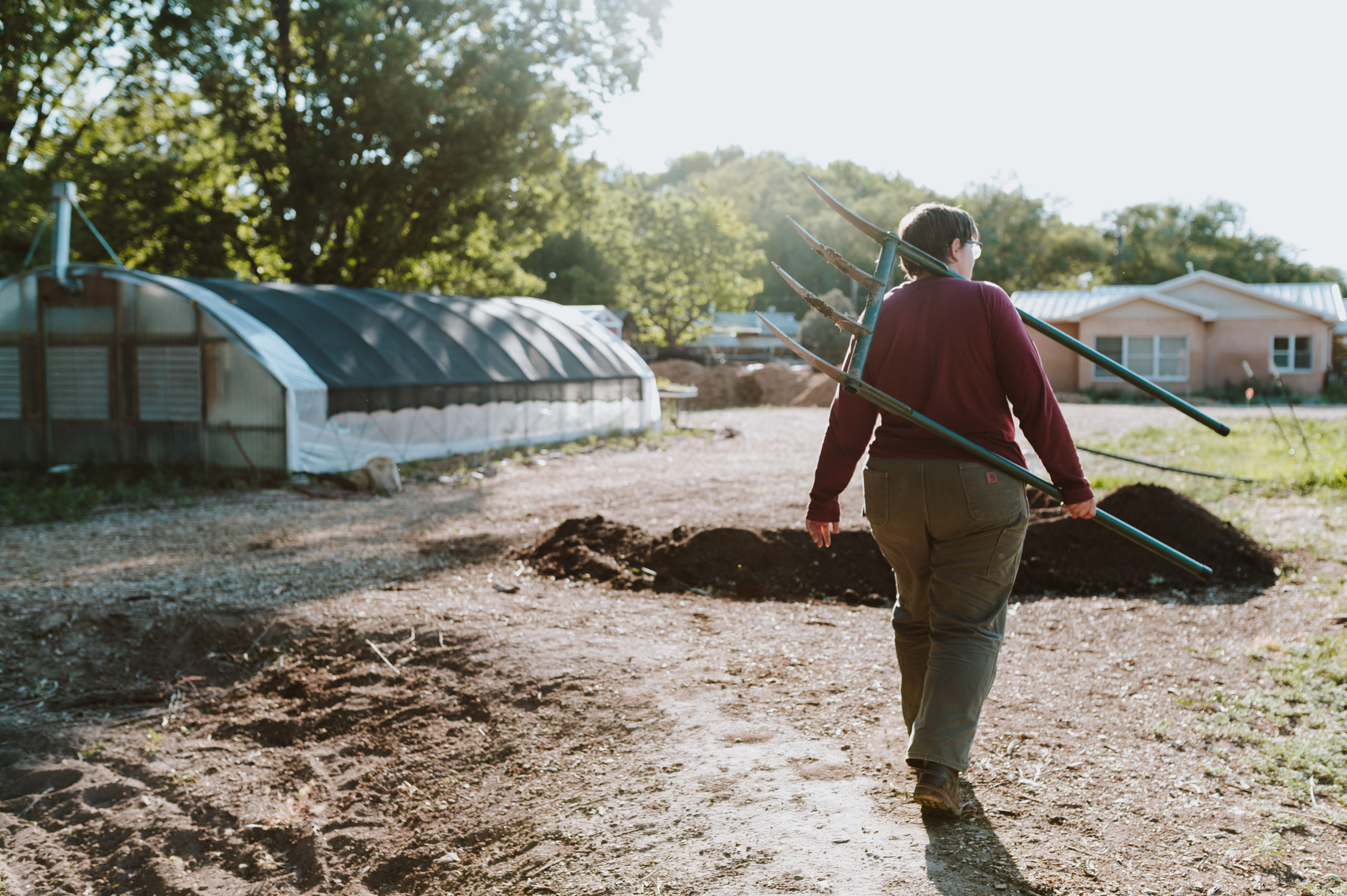
Jul 29, 2020
Cultivation calling: Academic finds a place in organic farming
Casey Holland was vaguely headed on a track to graduate school before stumbling into her true calling as an organic grower.
“I was just kind of aimless,” said Holland, who’s now the managing grower of Chispas Farm in Albuquerque, New Mexico. “When I was going to university, like many people around my age, I was very idealistic and wanting to find ways to change the world and do good for my community.”
She studied psychology and sociology at the University of New Mexico, and these intellectual rambles led her to a minor in peace studies and a “community internship” with a food justice group. To her, it was liberating to make a difference simply by working in community gardens.
Upon graduation in 2012, she took a job working on a small farm.
“Everybody thought I was crazy, because I canceled my graduate school plans and my summer school plans, and I stayed at home to become a farmer,” she said.
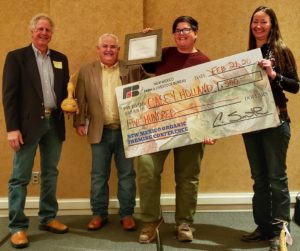
But the decision was well thought-through, and Holland has stayed the course, spending eight years working on half-a-dozen small farms in Albuquerque. In March 2020, she received the Young Farmer of the Year Award from the New Mexico Organic Farming Conference.
“One of the things I admire about Casey is she is all in,” conference facilitator Sage Faulkner said. “She doesn’t just farm 9-5, she spends every minute thinking about farming. She is the first to share her passion and I just really appreciate that she is so deeply committed to organic farming.”
The growth of a young farmer
At 30 years of age, growing since she was 21, Holland sees herself as “almost not a beginner anymore.”
One early experience taught her that no amount of planting preparation will solve a soil problem.
“There was one farm I was working at that I won’t name that really hadn’t been practicing its soil health in the way that they said they were, and me and my teammates, we worked so hard to grow thousands of plants, and prep the soil and get it ready to plant, and they just never really grew,” she said. “That was maybe one of the biggest lessons of my life, I think. I saw all the effort you can put in before even planting a seed, to then just get that over-months feedback that something wasn’t just right, and nothing we ever did was going to change that.”
Although most of her previous employers avoided using hard chemical treatments, Chispas is the first organically-certified farm she’s worked on.
“Before Chispas, which is where I’m managing now, I had always grown organically, but without the certification,” Holland said. “It just so happened that when I started managing Chispas, in 2017, this farm was certified and I needed to keep up the certification. So that’s where my college degree came in handy, because, I joke, it is almost like a dissertation every year.”
She has banned tractors from Chispas. For a while, she and farmhands operated a BCS walk-behind 749 PS with a variety of tillage implements. “A tractor weighs thousands of (pounds). This thing weighs maybe a couple of hundred,” Holland said.
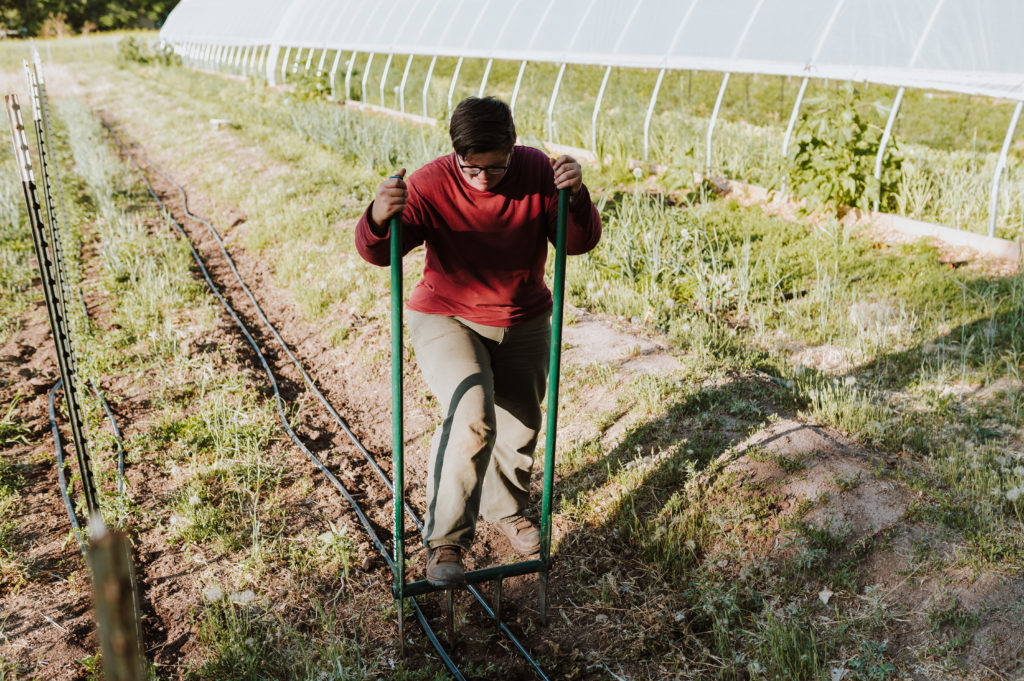
Since that time, she’s moved to a giant earth fork – also known as a “broad fork” – to break up the soil.
She said she’s not opposed to tractors per se. “I do firmly believe that on a new field that needs a lot of work, tractors are really important to open things up,” she said.
Loving the Land
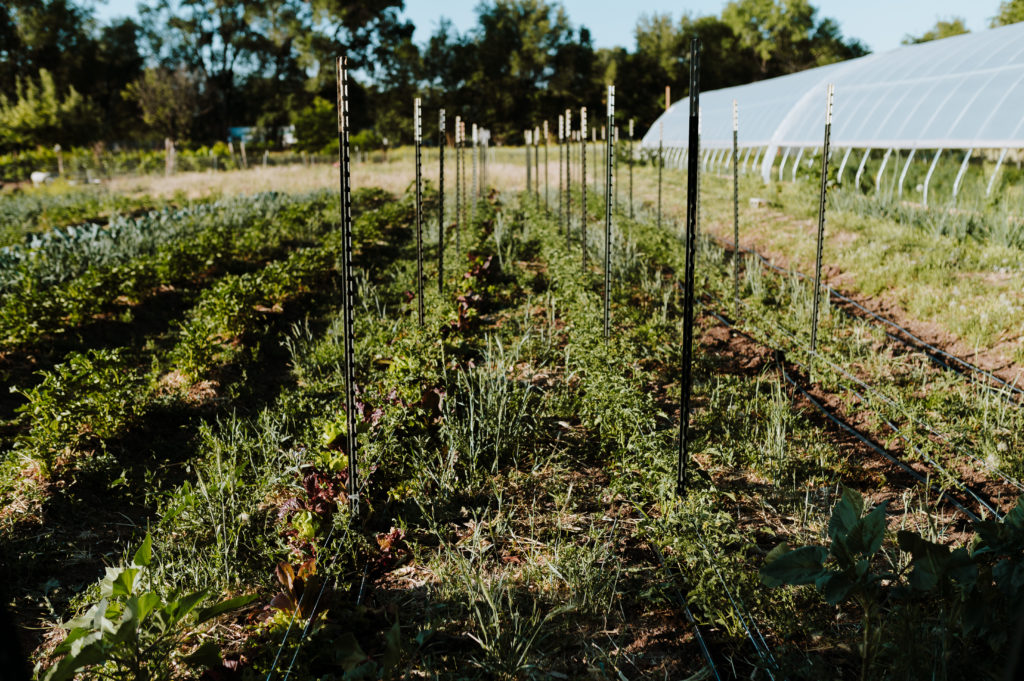
As a grower, Holland is a “regional specialist” as she says, having worked mostly on land in the Rio Grande Valley.
Chispas Farm, in the Rio Grande’s floodplain, is only a 10-minute drive from downtown Albuquerque.
The four-acre plot is split up for diverse production, with about 1.75 acres in vegetable production, 1.25 in perennials and pasture, and the remaining acre split up with orchards and wildlife. In addition to Holland, who lives on the farm site, there’s Isaac, a full-time hired hand. A part-time employee helps fill in the gaps in the work schedule.
The proximity to the river certainly helps, as the environment is quite arid. She and other growers in the area practice “acequia”– a set of community irrigation ditches.
“We share water with each other,” she said.
The practice of acequias dates back at least to the period of Spanish colonization of the Southwest, and Holland said it goes back even farther. Acequia associations in New Mexico have the power to borrow money and enter into contracts for maintenance.
The soils alternate between heavy clay and sandy soil. At Chispas Farm, Holland has tried to redeem even a field of heavy clay by spreading woodchips on the area and using it to raise her cows and laying hens.
“It’s really come a long way,” she said. “This place had really been just an abandoned, large lot – kind of overgrown maybe like 25 years ago. And then, through the years, we’ve slowly reclaimed and returned to farmland.”
Her predecessors started slowly clearing fields, putting in infrastructure. Before Holland was hired to re-start the farm, it had been “left” for a couple of years. Since arriving at the farm in 2017, she’s tried to build the soils through a variety of techniques.
“Through cover cropping, through really adding a lot of organic matter and compost, and amendments, we’ve become this really lush place,” she said.
Protecting from pests
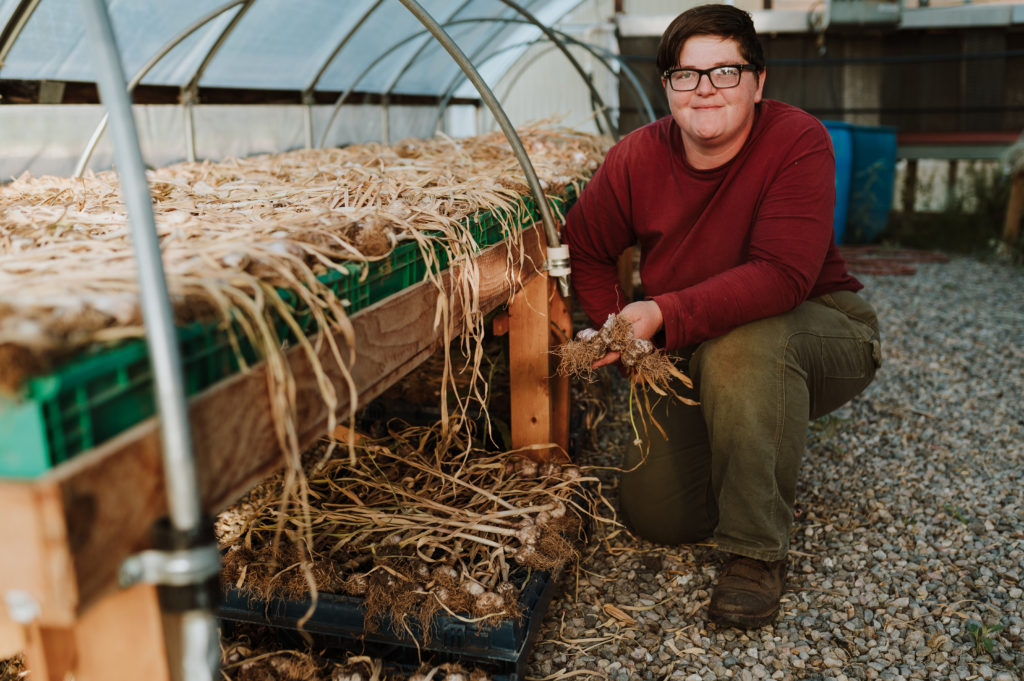
New Mexico does suffer from significant pest pressure.
“Around here, you could get any farmer going for months about the squash bug,” she said when asked about pest pressure. Large, flattened insects, squash bugs (Anasa tristis) feed on a variety of cucurbits. Another main concern is the invasive harlequin bug.
“Those two are the ones that make my life really hard,” she said. Holland’s control tactics include using insect netting over her summer squash, and even skipping winter squash. She grows cilantro and carrots not only for sale but because they attract the parasitic wasps who lay eggs inside pest insects. Hoverflies, another beneficial insect, have begun to show up.
Birds are welcomed at the farm.
“One practice I’ve developed is growing several rows of sunflowers that are almost entirely dedicated to the birds,” she said. “And the birds, they are just incredible predators. They hunt bugs like it’s nobody’s business.”
Chickens also can help devour weed seeds and bugs. They also help spread the cow manure as they scratch and peck for seeds, she said.
An evolving business model
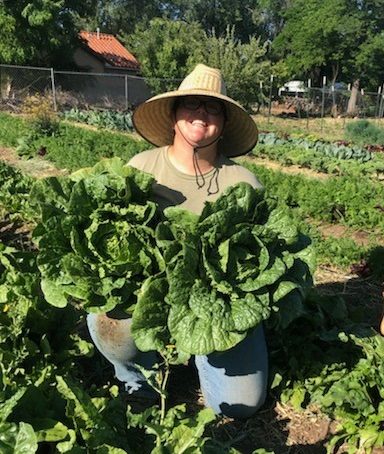
Chispas farm in recent years has grown as many as 120 different varieties of fruits and vegetables.
“We try to grow a bit of everything – that helps the farm retain its resilience in hard years,” she said. “I would call us a diversified market farm.”
Some big sellers have been garlic, tomatoes, peppers, onions, zucchinis, carrots and beets.
About 20 fruit trees were left from previous growers at the farm. Holland has planted the ground beneath them with medicinal herbs and flowers that she could sell to customers.
“We’ll have a ton of medicine and flowers to harvest from the understory,” she said.
The advent of COVID-19 and its disruption in the food market have forced changes to the business model.
Normally, the farm has sold to about 10 different restaurants within two miles of the farm, and the downtown farmers’ market. The farm produced 20,000 tons of food last year, she said.
In the COVID-19-era, sales have continued in the form of community-supported agriculture (CSA) and farm to food banks.
“There’s one phrase that keeps me going. It’s, ‘If not you, then who? If not now, then when?’” Holland said. “The other is, ‘Do the work that needs to be done where you are.’ When I think of other things I could do with my life, there’s nothing more urgent or relevant or rewarding – I can’t think of another occupation that provides all of the wonderful things that farming does,” she said.






